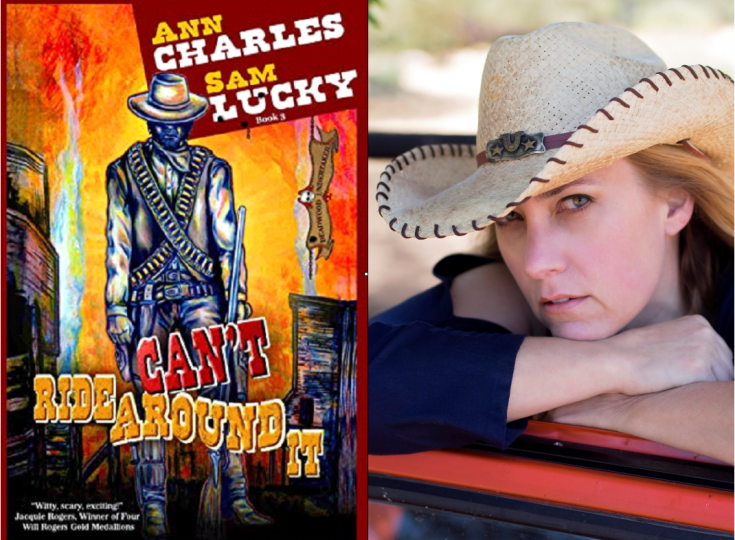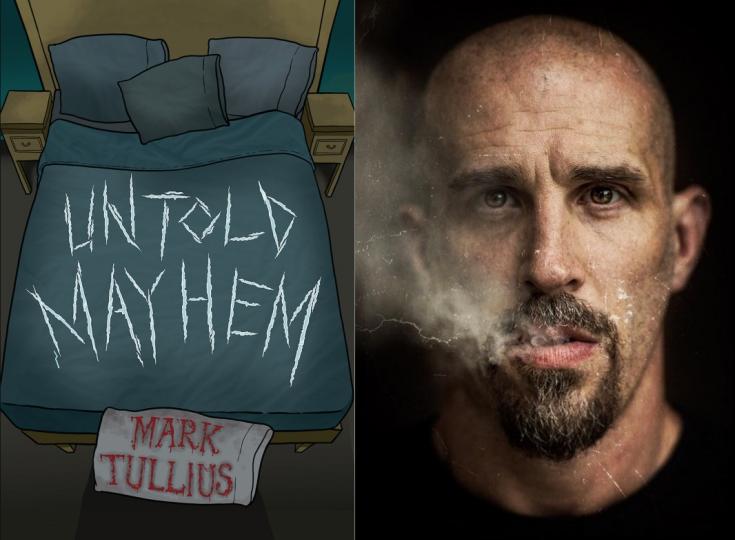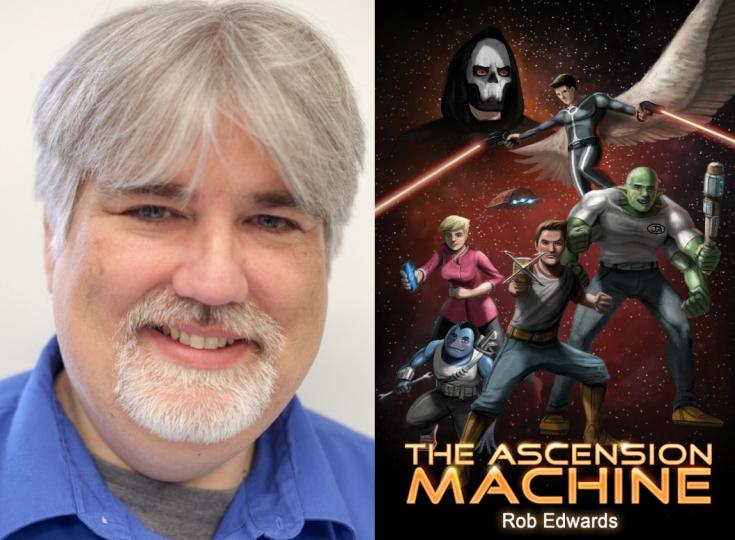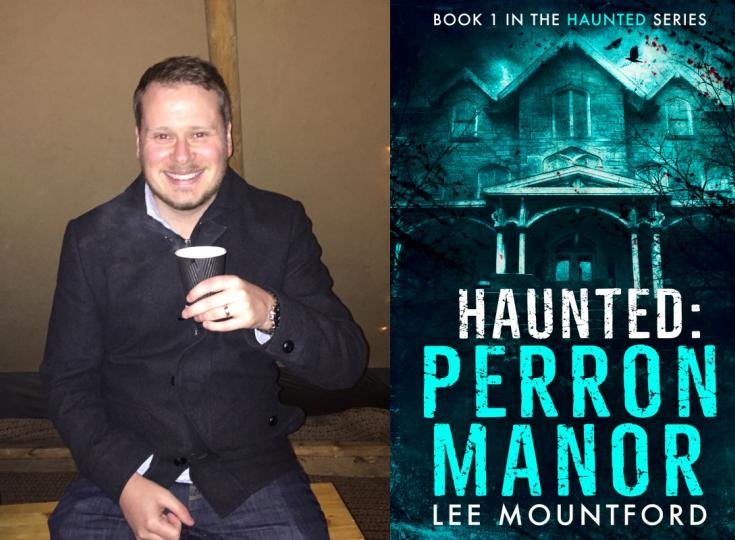Richard C. Lyons - The Where, When, Why and How of Human Liberty
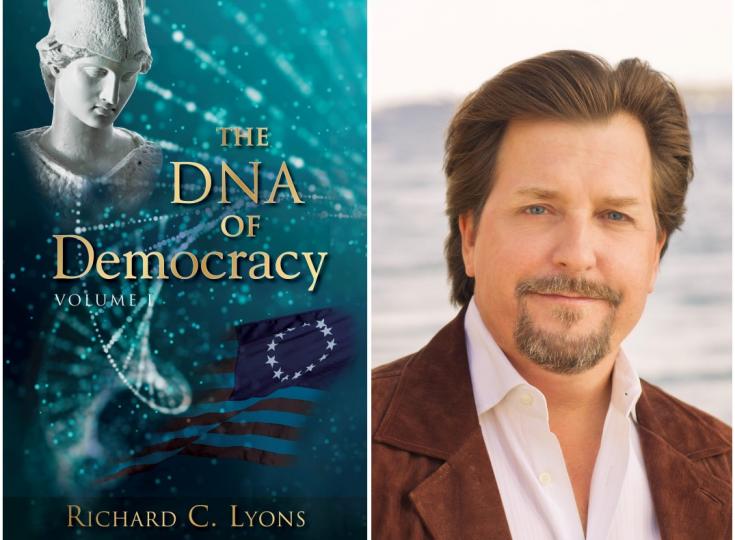
Richard Lyons was born and raised in the mid-western United States. His education took him through Loyola Academy, the University of North Texas and a graduate career at Southern Methodist University. Lyons has been a life-long admirer of the written word which has led him to literary pursuits as a poet, essayist and screenwriter. Professionally, Lyons is a third generation printer, whose father dedicated his life to education in the publishing and telecommunication fields. Lyons has been involved in printing, publishing, stage and television production throughout his professional career. As our Author of the Day, he tells us all about his book, The DNA of Democracy.
Please give us a short introduction to what The DNA of Democracy is about.
The book is about the differences between tyranny and democracy. As one goes through the history of democracy, one learns how rare a system of government it has been. Therefore, the work concentrates on the where, why, when and how of human liberty. The work is a how to work in being able discern the works of tyranny.
What inspired you to write a collection of historical vignettes?
The factual stories of democratic revolutions, their hero’s and the foundations they laid for our country define what is so important – that common freedom must be put ahead of every other individual desire.
Where does your fascination with history come from?
Since early on I was interested in the romantic aura that surrounds lost peoples in the mists of times past. History provides characters aplenty. History provides desperate conditions that demand honor and valor. History is the original lens through which to learn how to act, based on the shoulders of those history has left behind.
How much research did this collection require from you, and what was the most interesting aspect of this research?
The reading research took a year to get through, then there are the gaps and changes you meet along the way, representing another month or two. It was interesting to find that every single tyranny functions the same.
Besides writing, what other secret skills do you have?
I enjoy mountain skiing, reef diving and I play a guitar, not as well as I would like to.
I have a skill as a traveler.
What drew you to poetry?
Shakespeare, Ovid & Homer.
Why did you title this "The DNA of Democracy"?
In the research I noticed that, just as noted above, all tyrannies act the same, by concentrating power into the fewest hands. Democracy is the exact opposite ideally, putting power in everyone’s hands. There are different “codes” whereby this is accomplished. For a tyrant, one code is “force of arms: for the democracy, the opposite DNA code is “force of law.”
Therefore, I imagined the series of codes in each opposite case and it played out factually - over 3,000 years of history.
Why is it important to look at the acts of tyrants and heroes?
The acts of tyrants are always self serving, invasive and threatening. If there is anything good or a seeming “gift” from them, it is coercive to the same self-serving end.
Conversely,the acts of hero’s are always self-sacrificing, protective of others and for the sake of an ideal that is outside the self.
Is there something that compels you to write? And do you find that writing gives you clarity about yourself or ideas you have been struggling with?
Everyone has a gift, I always wanted mine to be dunking a basketball, but I am not that tall. Whatever the gift, it needs to be developed through diligence, you have to grow through adversity - into and through the gift. It also needs to be put out from under the basket or it is sweat without light.
When one researches an idea, there is a mound of facts and features, in the architecture one creates through reasoning the facts together, there develops clarity.
Which famous person, living or dead would you like to meet and why?
Shakespeare, for when you meet him you meet a soul who contains a thousand characters of all kinds, from every walk of life, in every circumstance imaginable, and they are all poets.
Do you have a favorite line from the book and can you explain what that line means to you?
From Threnody by Emerson
Silent rushes the swift Lord
Through ruined systems still restored,
Broad sowing, bleak and void to bless,
Plants with worlds the wilderness;
Waters with tears of ancient sorrow
Apples of Eden ripe to-morrow.
House and tenant go to ground,
Lost in God, in Godhead found.
Talk to us about your writing routine, what is a typical writing day for you?
I start the day with a workout to get the blood flowing to the brain. Then a few minutes of quiet meditation. Organize what needs doing within the week or day - and Drive. The work-day usually begins with writing and ends with reading or odds and ends.

What are you working on right now?
Volume II of this series that began with “The DNA of Democracy.” Vol. II is titled “Shadows of the Acropolis,” it involves how a society may lose a democracy, through processes that are not what you might think.
Where can our readers discover more of your work or interact with you?
I have a website richardclyons.com where descriptions of other works can be found. We have a sales point website at lylea.com. I am on Amazon in an Author’s page and I have a facebook page, that is hard for me to get to on a regular basis.
I want to thank you very much for this interview and your interest in “The DNA of Democracy.”
